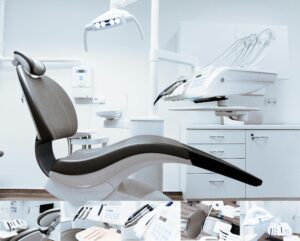Diet soft drinks are a popular choice for those looking to cut down on sugar. They’re often marketed as a healthier alternative to regular soft drinks.
But are they really better for your teeth?
This article delves into the relationship between diet soft drinks and dental health. We’ll explore whether these sugar-free beverages are as tooth-friendly as they seem.
We’ll also discuss the role of acidity in diet soft drinks and its potential effects on your teeth. Plus, we’ll provide practical tips to minimise any potential harm.
Join us as we uncover the truth about diet soft drinks and dental health.
Understanding Diet Soft Drinks and Dental Health
Diet soft drinks, though free from sugar, still pose challenges to dental health. The acidic content in these beverages is often overlooked. It can lead to enamel erosion, a process that’s irreversible.
The acids in diet soft drinks are the culprits. They weaken tooth enamel over time, making it more susceptible to decay.
Diet soft drinks often contain citric acid and phosphoric acid. These ingredients are responsible for their tart flavour and long shelf life.
While sugar substitutes don’t cause cavities directly, they don’t neutralise acidity either. This means acid erosion can still occur even without sugar.
It’s crucial to understand the difference between dental risks posed by sugar and acid. Addressing these issues helps maintain optimal dental health.
The Acidity of Diet Soft Drinks and Its Effects
Acidic components in diet soft drinks cause significant dental erosion. This erosion leads to weakened enamel, which cannot regenerate.
The pH levels in many diet beverages are alarmingly low, comparable to battery acid. This acidity strips away minerals, exposing teeth to further damage.
Frequent consumption can overwhelm saliva’s natural protective abilities. Saliva neutralises acids, but constant sipping reduces its effectiveness.
This erosion can result in increased tooth sensitivity and higher cavity risk. It’s essential to acknowledge these potential effects on your dental health.
Sugar Substitutes and Oral Health
Sugar substitutes give diet soft drinks their sweet taste. Unlike sugar, they don’t contribute to cavity formation directly.
However, they don’t prevent acidity-related damage either. The acids present in the drink still affect enamel integrity.
Understanding the true role of sugar substitutes helps manage your dental health better. They are not a free pass to indulge without consequences.
Comparing Diet and Regular Soft Drinks: Dental Health Implications
Diet soft drinks are often perceived as healthier than regular ones due to the absence of sugar. However, this doesn’t tell the whole story regarding dental health. Both types of soft drinks have high acidity levels that erode enamel.
Regular soft drinks contain sugar, which can feed harmful oral bacteria. This leads to cavities and decay. On the other hand, diet soft drinks skip the sugar but retain acidic components that damage teeth over time.
Choosing between these beverages means weighing sugar against acids. Neither is completely safe for dental health if consumed frequently. Moderation becomes key to reducing dental risks.
The Role of pH Levels in Dental Erosion
The pH level of a soft drink plays a significant role in dental erosion. Drinks with low pH levels, like many diet sodas, are highly acidic. This acidity can cause more harm to tooth enamel than sugar does in some cases.
Diet soft drinks often have pH levels as low as 2.5 to 3.5. Such acidity levels can be compared to some acidic foods and beverages known for causing erosion.
Understanding pH and its effects helps in making informed choices. Choosing drinks with a pH level closer to neutral can minimise damage to enamel, ensuring better dental health.
Preventive Dental Care and Diet Soft Drinks
Diet soft drinks pose a risk to dental health, but preventive care can mitigate some damage. Good oral hygiene practices are crucial for protecting teeth from acids present in these beverages.
Brushing twice daily with fluoride toothpaste strengthens enamel. Fluoride acts as a shield against acid erosion, helping maintain strong teeth. Regular dental check-ups are also essential for monitoring any potential erosion or decay.
Additionally, saliva plays a vital role in neutralising acids. To encourage saliva production, chewing sugar-free gum can be beneficial. It promotes saliva flow, which aids in washing away harmful acids.
Here are some preventive measures to consider:
- Rinse your mouth with water after drinking diet soft drinks.
- Use a straw to minimise contact between the drink and your teeth.
- Wait at least 30 minutes to brush your teeth after consuming acidic beverages.
Incorporating these steps into your routine can help safeguard your dental health when indulging in diet soft drinks.
Practical Tips for Minimising Dental Risks
Consuming diet soft drinks carefully is key to minimising dental risks. Moderation remains the most important factor in protecting your teeth. Limiting intake reduces prolonged exposure to acids.
Besides moderation, simple habits make a significant difference. Rinsing with water immediately after consuming these beverages helps neutralise acid. Additionally, using a straw while drinking keeps acids from contacting your teeth directly.
Implementing these tips allows enjoyment of diet soft drinks without compromising dental health. Prioritise these small changes to maintain a healthy smile.
The Bigger Picture: Diet Soft Drinks in a Balanced Diet
While diet soft drinks can fit into a balanced diet, understanding their role is essential. It’s important to consider both their potential benefits, like weight management, and their risks, including dental health impacts.
Moderation is key when incorporating diet soft drinks into your daily routine. Balancing these beverages with nutrient-rich options supports overall health and well-being. Being mindful of consumption frequency can help manage dental risks while still enjoying these drinks occasionally.
Ultimately, a holistic approach to diet that includes awareness of beverage choices leads to better health outcomes. Paying attention to both diet soft drinks and other dietary elements ensures a more comprehensive path to wellness.
Alternatives to Diet Soft Drinks for Better Dental Health
To protect your teeth, consider swapping diet soft drinks for water or milk. Both offer dental health benefits, like hydration and the nutrients needed for strong enamel.
Exploring other sugar-free beverage options can further ensure healthy, long-lasting teeth.
Conclusion and Recommendations
In evaluating diet soft drinks and dental health, awareness is crucial. These beverages, while often marketed as healthier options, still pose risks to teeth due to their acidity. Regular consumption may lead to enamel erosion and other dental issues.
Adopting preventive measures can mitigate these risks. Simple practices like using straws, rinsing with water, and ensuring regular dental check-ups can protect enamel. A balanced approach to consumption, where diet soft drinks are enjoyed in moderation, helps maintain oral health.
Understanding the impact on dental health allows for more informed decisions. Considering the broader dietary context ensures a comprehensive view of health, beyond the immediate effects of these beverages.
Encouraging Informed Choices and Dialogue with Dental Professionals
Open discussions with dental health professionals provide personalised advice on diet soft drinks. They can offer tailored recommendations that align with your unique health needs and objectives.
Making informed choices about beverage consumption supports both dental and overall health, promoting long-term well-being.








